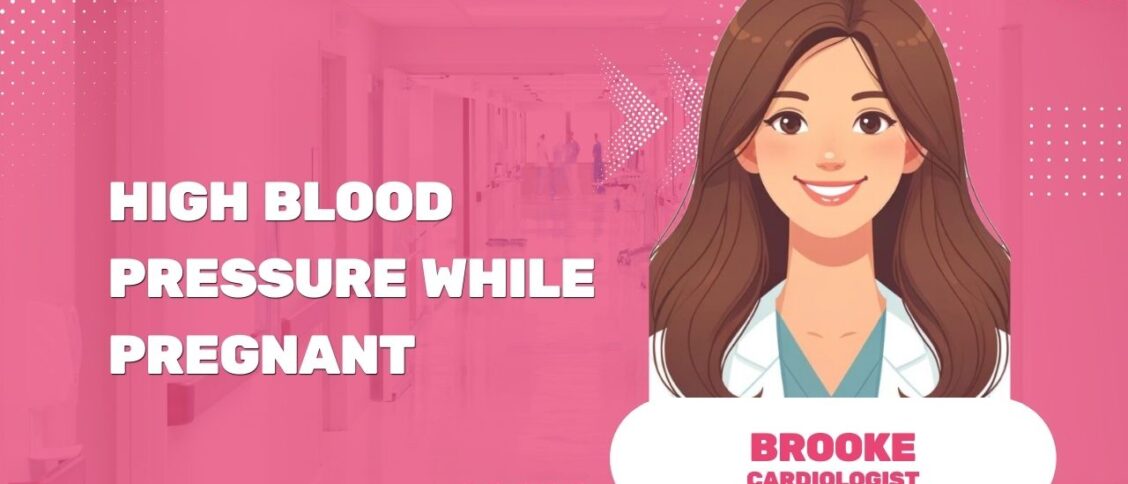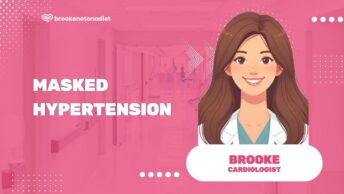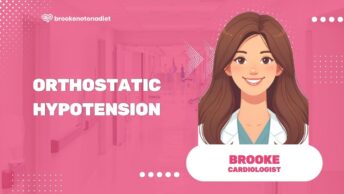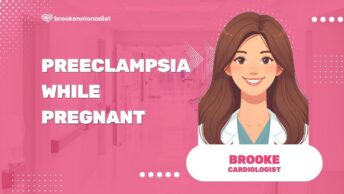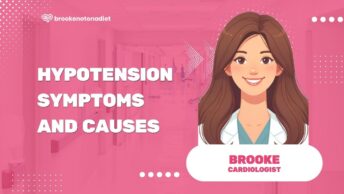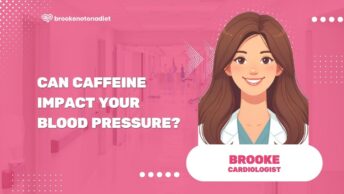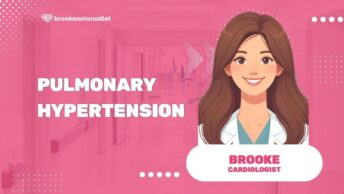High blood pressure during pregnancy isn’t just a concern for me, it’s a concern for many expecting mothers out there. It’s a common condition that can lead to serious complications if not properly managed. I’ll be diving deep into this topic, shedding light on the causes, symptoms, and potential risks associated with high blood pressure while pregnant.
It’s crucial to understand that high blood pressure doesn’t just affect the mother, it can also have significant impacts on the baby’s health. In the following sections, I’ll be discussing the importance of regular prenatal check-ups and the role they play in managing this condition. Let’s navigate this journey together, ensuring a safe and healthy pregnancy for all the moms-to-be out there.
What are the types of high blood pressure during pregnancy?
Understanding the different types of hypertension present during pregnancy can aid in better management and regular prenatal check-ups. Let’s delve into these types to ensure you’re equipped with the necessary knowledge.
Chronic Hypertension
Chronic hypertension refers to high blood pressure that’s present before pregnancy or diagnosed before the 20th week of gestation. It doesn’t disappear post-delivery and might require treatment. While it’s not directly caused by pregnancy monitoring it becomes even more crucial due to possible risks to the mother and the baby. Regular check-ups and a good blood pressure monitor are vital.
Gestational Hypertension
Gestational hypertension is a condition occurring after the 20th week of pregnancy. Women with gestational hypertension have high blood pressure but no other signs or symptoms related to preeclampsia. The key is it usually goes away after childbirth.
Are Gestational Hypertension and Preeclampsia the Same?
Here’s a common question I get – “Are gestational hypertension and preeclampsia the same?”. They’re not. Yet let me explain the subtle difference. The presence of protein in the urine or other health complications is what differentiates preeclampsia from gestational hypertension.
Preeclampsia
Preeclampsia is a severe form of hypertension pregnant women can experience. It’s a serious condition that can affect several organ systems including kidneys, liver, and blood clotting system. In addition to high blood pressure, preeclampsia symptoms can include high protein levels in the urine and swelling in the legs and hands. Lowering blood pressure and managing preeclampsia symptoms are the top priority in this case.
Eclampsia
Eclampsia is the most severe type of hypertension during pregnancy. This rare condition entails seizures in pregnant women suffering from severe preeclampsia. This form poses significant risks and requires immediate medical attention.
Now that you’re familiar with these different types, being proactive in managing your blood pressure has never been more crucial. Regular prenatal check-ups, maintaining healthy blood pressure ranges and employing a trusty blood pressure monitor will go a long way in your journey towards a safe pregnancy.
What are the symptoms of high blood pressure during pregnancy?
Knowing the symptoms of high blood pressure during pregnancy can aid in timely medical intervention, which is crucial in maternity health. Knowing how to check symptoms and using a reliable blood pressure monitor can definitely make a difference.
What are the symptoms of Chronic Hypertension During Pregnancy?
Chronic hypertension doesn’t always tell-tale signs during pregnancy. That’s why it’s essential to keep an eye on your blood pressure ranges and have regular check-ups.
Some signs to watch out for could include:
- Headaches
- Blurred vision
- Shortness of breath
Bear in mind these symptoms can also occur in a normal pregnancy, which makes regular check-ups and checking blood pressure even more important.
What are the symptoms of Gestational Hypertension During Pregnancy?
Contrary to chronic hypertension, gestational hypertension usually has noticeable symptoms. Women may experience some or all of the following indications:
- Swelling (especially in the hands and face)
- Sudden weight gain over 1-2 days or more than 2 pounds a week
- Abdominal pain, particularly in the upper right side
- Decreased urine output
- Nausea or vomiting
Notably, you can also use the blood pressure chart as a reference for normal and high BP levels. Lowering blood pressure can alleviate these symptoms.
What are the symptoms of Preeclampsia During Pregnancy?
Preeclampsia is a more grave condition and exhibits more severe symptoms. If you observe any of the following symptoms, immediate medical attention is advised:
- Headache that does not go away
- Trouble breathing
- Changes in vision, like blurriness, flashing lights, seeing spots, or being sensitive to light
- Burning behind the sternum or a feeling of indigestion
Preeclampsia can be serious for both the mother and the baby. Regular prenatal check-ups will ensure that any changes in blood pressure ranges are detected early. Can’t stress this enough – a good blood pressure monitor could be a literal lifesaver.
In the journey of pregnancy, being well-informed and cautious can go a long way in maintaining the health of both the mother and the baby. Constant vigilance regarding these symptoms and taking the necessary actions can drastically reduce the risks associated with high blood pressure during pregnancy.
What are the causes of high blood pressure during pregnancy?
It’s important to know that high blood pressure is a complex condition. There’s a trio of factors that work in tandem which usually result in high blood pressure during pregnancy:
- Genetics: A previously existing genetic predisposition for hypertension would increase the chances of developing high blood pressure.
- Age: Older women, especially those above 40, are more prone to experiencing blood pressure changes.
- Multiple pregnancy: Women carrying more than one child face higher risks.
However, these factors are not definitive as high blood pressure can occur even without their presence.
Coming to Gestational Hypertension, it’s different from Chronic Hypertension and develops after the 20th week of pregnancy. While the exact cause is still a topic of study, experts point towards the placenta as the main culprit. The placenta is critical for transferring nutrients from mother to baby. Problems in its development lead to a series of issues, high blood pressure being one of them.
Next, let’s dive into Preeclampsia. Preeclampsia occurs when high blood pressure and protein start to appear in a pregnant woman’s urine after the 20th week of pregnancy. The potential cause could be in the blood vessels. Under normal circumstances, new blood vessels are replaced by those that can accommodate increased blood flow. In women with preeclampsia, it’s likely that these blood vessels are not replaced, leading to increased blood pressure.
| Type | Timing | Cause |
|---|---|---|
| Chronic Hypertension | Before Pregnancy or before 20th week | Genetics, Age, Multiple Pregnancy |
| Gestational Hypertension | After the 20th week | Problems in Placenta Development |
| Preeclampsia | After the 20th week | Issues with Blood Vessel replacement |
Reading up on blood pressure ranges is always a good idea, and a blood pressure monitor can be a helpful tool in keeping check. Regular visits to your healthcare provider will ensure you’re keeping tabs on this potentially sneaky condition.
Knowing the causes of high blood pressure during pregnancy is part of the battle, but awareness can drastically reduce risks. Remain cognizant of the signs. Timely checking of blood pressure during pregnancy, aided by an understanding of blood pressure charts, holds key significance.
What are the risk factors of high blood pressure during pregnancy?
Let’s drill down into the key factors that may potentially spike the risk of high blood pressure during pregnancy. Specific conditions like age, family history, obesity, pre-existing diseases, and multiple pregnancies can all contribute significantly. By understanding these aspects, women can make informed decisions and manage their health better.
How Does Age Impact the Risk of High Blood Pressure During Pregnancy?
Age greatly influences the risk factors for gestational hypertension. Typically, younger women tend to have lower chances of developing high blood pressure. However, women above 40 risk a higher likelihood of experiencing high blood pressure concerns. Advanced maternal age can indeed cast a shadow on such physiological facets.
Should You be Concerned if Your Family has a History of Hypertension?
Absolutely. If potential moms or their families have a history of hypertension, the chance of them developing high blood pressure during pregnancy heightens. That’s the major role genetics plays here. It’s always sagacious to keep regularly checking blood pressure using a reliable blood pressure monitor to thwart complications.
How Does Obesity Impact High Blood Pressure During Pregnancy?
Obesity makes the entire scenario a tad grimmer. Obesity can exacerbate the risk of high blood pressure due to increased strain on the heart. It needs to pump more blood to supply the additional body mass, which can put pregnant women at a higher risk of gestational hypertension. Being conscious about maintaining healthy blood pressure ranges and any means of lowering blood pressure can turn out to be lifesavers, regardless of your weight.
Can Pre-existing Conditions Like Diabetes Contribute to High Blood Pressure During Pregnancy?
Unquestionably, yes. Women with certain pre-existing conditions, particularly diabetes, are more probable to endure hypertension during pregnancy. Balancing diabetes and blood pressure can be tricky, yet it’s also doable. Research suggests that vigilant diabetes and blood pressure management during pregnancy can minimize potential risks.
Are You More Likely to Have High Blood Pressure if You are Pregnant with Multiples?
The short answer to this is yes. Women carrying multiples are indeed confronted with an amplified likelihood of gestational hypertension. It’s due to the additional strain caused by carrying more than one baby. However, don’t ring the alarm bells just yet. Plenty of multiple pregnancies occur flawlessly, with timely and careful monitoring.
Bear in mind that these risk factors don’t guarantee high blood pressure. They merely indicate a higher likelihood. Awareness and knowledge are the first steps towards more substantial care. Let’s press on to uncover more facets of this topic.
Why high blood pressure during pregnancy is dangerous?
Understanding the dangers associated with high blood pressure during pregnancy is instrumental in realizing why it’s important to maintain health standards and manage your blood pressure effectively.
Does High Blood Pressure Increase the Risk of Premature Birth?
High blood pressure can indeed escalate the risk of premature birth. The cause behind this lies in the fact that high blood pressure can lead to Preeclampsia – a serious condition that generally arises after 20 weeks of pregnancy.
If you’re dealing with preeclampsia, it can cause your doctor to recommend early delivery. This invariably results in premature birth. A study conducted has an interesting statistic on this:
| High BP Patients | Premature Birth Rate |
|---|---|
| Yes | 40 |
| No | 10 |
The table above suggests that subjects with high blood pressure have a four-fold increased risk of giving birth prematurely.
Can High Blood Pressure During Pregnancy Harm the Baby?
Sadly, yes! One of the major risks associated with high blood pressure involves the wellbeing of your baby. Preeclampsia (caused by high blood pressure) results in decreased blood flow to the womb which translates to less oxygen and fewer nutrients reaching the fetus. This can lead to your baby growing slower than usual or even Intrauterine Growth Restriction (IUGR).
Can High Blood Pressure Lead to Low Birth Weight?
Yes it can. When your baby doesn’t get adequate nutrition due to reduced blood flow (caused by high blood pressure), it ultimately results in low birth weight. Babies with low birth weight are typically smaller in size and face a number of health issues like difficulty in fighting infections and experiencing delayed motor and social development.
What Is HELLP Syndrome and How Is It Related to High Blood Pressure?
HELLP Syndrome is a life-threatening pregnancy complication predominantly thought to be a type of severe preeclampsia. The acronym HELLP stands for Hemolysis, Elevated Liver enzymes and Low Platelet count. It is strongly related to high blood pressure in pregnancy, exacerbating the situation and necessitating immediate treatment. Unlike preeclampsia, HELLP syndrome can occur before 20 weeks of pregnancy, but it is more likely to occur in the later stages.
Remember, to keep these complications at bay, it’s vitally important to keep a constant check on your blood pressure by using a blood pressure monitor. Early detection can potentially save the day, precluding the onset of grave conditions like preeclampsia and HELLP syndrome.
What can I do to reduce the risk of complications from high blood pressure?
What Steps Can You Take to Have a Safe Delivery with High Blood Pressure (Hypertension)?
Taking care of your body is crucial when dealing with hypertension. It’s even more important if you’re planning a safe pregnancy or if you’re already pregnant.
- Know the Numbers: Understanding blood pressure chart will help in identifying where you stand in terms of your health. You’ll be able to see if your readings are within normal blood pressure ranges or not. The numbers themselves might seem cryptic, if not downright intimidating, at first but they’re easier to interpret with a bit of knowledge.
- Regular Check-ups: It’s essential to regularly monitor your condition by checking your blood pressure with a reliable blood pressure monitor. This way, you can detect any abnormal fluctuations early and discuss them with your health care provider.
- Healthy Lifestyle: Incorporate physical activity into your routine, maintain a balanced diet, limit salt intake, and also avoid smoking and alcohol consumption.
- Medication: If lifestyle changes aren’t bringing the desired result, your specialist might suggest medication. This decision is usually made while considering both the mother’s and the baby’s health.
Will You Be Able to Breastfeed a Baby if You Have High Blood Pressure?
Yes, having high blood pressure isn’t a barrier to breastfeeding. In fact, breastfeeding has been shown to help lower blood pressure for both the mother and the infant in the long run.
However, you must ensure that any medication you’re on for hypertension is safe during breastfeeding. It’s crucial to communicate effectively with your health care provider about your decision to breastfeed so they can prescribe you medication that’s compatible with your choice.
Remember, managing high blood pressure isn’t impossible. You can experience a healthy pregnancy journey by recognizing the signs, monitoring your blood pressure, making lifestyle changes, and seeking regular medical support. Don’t hesitate to ask for help – it’s your health and your baby’s health that matter the most.
How is high blood pressure during pregnancy diagnosed?
High blood pressure during pregnancy can be challenging to spot because some symptoms might resemble “normal” pregnancy discomforts. But, if you’re armed with the right information, keeping an eye on it becomes simpler.
What Blood Tests are Performed to Check for High Blood Pressure During Pregnancy?
Blood pressure monitor readings provide the first clues to a possible high blood pressure problem. If elevated levels are noticed, especially after 20 weeks of pregnancy, doctors often order specific blood tests. The main goal is to rule out preeclampsia – a severe medical condition that can impact both mother and baby.
Tests usually include:
- Liver function tests
- Blood clotting factors
- Kidney function tests
- Platelet count
These tests don’t diagnose high blood pressure, but they do assess bodily functions often impacted by it.
Why is a Urine Test Important for Diagnosing High Blood Pressure While Pregnant?
Urine tests are a crucial part of diagnosing high blood pressure in pregnancy. When blood pressure is high, your kidneys might not be able to filter out waste efficiently. This inefficiency can lead to protein presence in the urine.
By checking urine samples, medical professionals can pinpoint proteinuria, a significant indicator of preeclampsia. Therefore, this test is a robust measure to detect fluctuations in blood pressure ranges.
How Do Ultrasound Scans Help in Monitoring High Blood Pressure?
Two types of ultrasound scans are typically utilized when dealing with high blood pressure during pregnancy:
- Doppler ultrasound: It focuses on tracking blood flow in the umbilical cord, helping assess whether the fetus is getting enough oxygen and nutrients.
- Growth scan: It monitors the baby’s growth, ensuring high blood pressure isn’t hindering proper development.
These ultrasound scans don’t diagnose high blood pressure, but they’re key to prudent monitoring of the baby’s health.
What is a Non-Stress Test and Why is it Done?
A non-stress test (NST) measures the baby’s heart rate in response to its own movements. In a healthy pregnancy, the baby’s heart rate temporarily accelerates during activity. If high blood pressure is affecting the placenta’s functionality, those accelerations might not occur or they could be less exaggerated.
While NST isn’t a direct tool in diagnosing high blood pressure, it’s extremely helpful in managing and lowering blood pressure-related risks.
Knowledge about diagnosing and monitoring high blood pressure during pregnancy empowers you, keeping you an engaged agent of your own health. Live in collaboration with your healthcare providers, and remember: You’re the most critical voice when it comes to advocating for your and your baby’s health.
How to lower high blood pressure during pregnancy?
Dealing with high blood pressure during pregnancy needs understanding, caution, and a well-devised strategy. It’s not just about altering your current lifestyle, it’s also about adopting new practices and keeping a regular tab on your health. Here are some ways that can help.
What Medications are Safe for Treating High Blood Pressure During Pregnancy?
Being pregnant doesn’t mean you have to bear the brunt of high blood pressure. Certain medications are perfectly safe and can help manage your blood pressure effectively. These may include:
- Methyldopa
- Labetalol
- Nifedipine
Remember, everyone’s body responds differently to medication. So it’s crucial to discuss these options with your healthcare provider to choose the one that’s best suited for you.
How can Lifestyle Changes Like Diet and Exercise Help in Lowering Blood Pressure During Pregnancy?
Modifying your lifestyle can have a significant impact on your blood pressure. Here are some changes you can make:
- Follow a healthy diet: Foods rich in fiber, low in sodium, and full of fresh fruits, vegetables, and lean proteins can help maintain a healthy blood pressure.
- Exercise regularly: Moderate exercise for about 30 minutes most days of the week can significantly reduce your blood pressure.
- Maintain a healthy weight: Ensuring a healthy weight gain during pregnancy can lower the risks of high blood pressure.
- Limit alcohol and caffeine: Cutting back on these can also help ease the pressure.
How Often Should You have Check-ups if you Have High Blood Pressure while Pregnant?
Regular check-ups are crucial when you’re dealing with high blood pressure while pregnant. Your doctor may recommend coming in at least once a week for blood pressure checks and monitoring.
What Should You Do When You Have High Blood Pressure During Pregnancy?
It’s key to remain vigilant and keep in touch with your healthcare provider regularly. Make sure you’re consistently checking your blood pressure and being responsive to any symptoms that suggest a complication.
What Should You Do When You Have High Blood Pressure Before Pregnancy?
If you had high blood pressure before getting pregnant, it’s not too late to manage it. You’ll need extra care during your pregnancy but lowering your blood pressure is still achievable. Regular check-ups, healthy lifestyle changes, and safe medication can help you control your blood pressure effectively.
What Should You Do When You Have High Blood Pressure After Pregnancy?
Postpartum high blood pressure needs attention too. Follow the instructions given by your healthcare professional, take your medications, stick to a healthy lifestyle and don’t skip any scheduled visits to the doctor’s office. Lastly, be patient. Your body may take some time to adjust after birth. Give it the rest it deserves.
This route towards managing high blood pressure during pregnancy may seem daunting at first but with the right knowledge and help, it’s fully navigable.
How to take blood pressure while pregnant?
Blood pressure plays an essential role in prenatal health. Knowing how to check your blood pressure can help keep you on track and ensure you’re doing what’s best for your and your baby’s health.
What is the Best Blood Pressure Monitor for Pregnant Women?
There’s a wide variety of home blood pressure monitors on the market, but it’s crucial to find one that’s reliable and easy to use. According to my years as a health writer and conversations with healthcare experts, automatic, digital monitors that are fitted on the upper arm are often considered the best. Here are the top three monitors often recommended:
- Omron Platinum Blood Pressure Monitor: Omron is a trusted brand that delivers accurate measurements. It even allows you to track your sessions via an app.
- Greater Goods Digital Arm Monitor: This is not only highly accurate but also budget-friendly, a combination that is hard to beat.
- Beurer BM26 Upper Arm Blood Pressure Monitor: It’s easy to use and includes features like irregular heartbeat detection and risk indicator.
To interpret your results, use a blood pressure chart or consult with your healthcare provider. Knowledge about blood pressure ranges can help you assess whether or not your readings fall within the normal range.
How to Properly Check Blood Pressure at Home
Follow these steps when taking a blood pressure reading:
- Rest for at least 5 minutes before taking a measurement.
- Firmly place the cuff on your upper arm. Ensure that it’s snug, but not too tight.
- Sit on a chair with your feet flat on the ground. Rest your arm on a table, with the cuff at heart level.
- Turn on the monitor and start the measurement. Avoid moving or talking during this time.
- Once the measurement is done, note down the reading. It’s useful for tracking your blood pressure over time.
Staying aware of how your body responds to pregnancy is crucial. Regularly checking blood pressure and knowing how to interpret measurements can help avoid complications. However, never use these readings to self-diagnose. Always consult with your healthcare provider if you have concerns.
This discussion doesn’t end here – we’ve more to share about strategies for lowering blood pressure during pregnancy, which we’ll delve into as we proceed further in this comprehensive guide.
Final words
I’ve shared with you the importance of monitoring your blood pressure during pregnancy. It’s crucial to understand how your body might react and to keep tabs on your health. However, don’t fall into the trap of self-diagnosis. Always consult with your healthcare provider to ensure you’re making the best decisions for you and your baby. Your blood pressure is just one piece of the puzzle. Stay tuned for more insights on how to manage high blood pressure while pregnant. Knowledge is power, and I’m here to help you navigate this journey with confidence.

